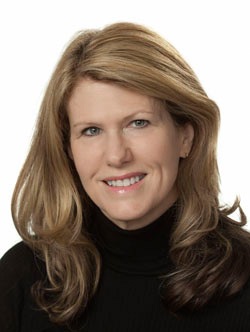21 May 2018
When Judy Wagner was involved in setting up a recruitment business more than 20 years ago, discussions around the glass ceiling and balancing the boardroom were only just starting and there was less emphasis on gender-balanced shortlists:
“Over the years we have monitored and tried to improve this balance, often finding the potential pool of candidates needed to be larger and sometimes that women themselves needed to have more confidence in their abilities and basically just to go for it.” She explains.
“Reports about the gender pay gap have helped to push the issue up the agenda. The demand for change is there — but are women ready and equipped? Organisations are focusing on having better gender balance on their boards, often recruiting female non-executive directors from other companies. But what about the executive funnel that should be propelling women into the boardroom?
“A quick glance at Scotland’s big listed companies shows no women chief executives or finance directors. Debbie Crosbie, chief operating officer at CYBG, the Clydesdale Bank parent, is one outlier. Why is it gender balance is strong at lower levels and narrows as you progress into more senior roles?
“The good news is there has never been a better time for women to push on up. Yet sometimes there is a hesitation and they fail to secure the prime role they’re going for. Many factors can contribute to this – confidence, motivation, responsibilities, time, culture, ability, aggressive competition – the list goes on, but it need not be that way.”
Recognising that a practical solution was required, Wagner and Professor Susan Murphy and set up the Executive Women’s Leadership Programme, focused on helping women up the career ladder and equipping them for more senior management and the boardroom.
Now entering its third year, more than 100 women have gone through the programme, from all sectors in both private and public organisations and all functional areas, attaining promotions, awards, accolades and career advancement.
It has also created a powerful and effective network of women who support, encourage and help each other all the time. For Wagner, it’s an essential component of the programme:
“People often ask: if we had more women in senior roles in our economy, would it be better? But in addition we are asking: what if those women were also strongly networked? Wouldn’t that potentially make for a stronger economy?”
Developing women in this way via bespoke leadership programmes also helps to reduce the gender pay gap. While many view the 28.5 per cent gender pay gap across all jobs in the UK as high, a great deal of the difference is represented by various occupational choices made by men and women. These are the result of societal expectations which push men into particular jobs and women into others. When men and women are in the same job, the wage gap reduces to 9.3 per cent and reduces even more to 2.6 per cent in the same job at the same company.
“The pay gap when comparing men and women in the same jobs in the same organisation disregards the fact there are fewer women in many high-paying jobs.” Argues Murphy.
“In other words, the overall pay gap to some extent is due to differences in the job types men and women hold and their presence or absence in upper management levels.”
A 2017 found only 19 per cent of senior management roles were held by women in the UK, down 21 per cent on the previous year. While women may be earning similar pay for similar work, they are less likely to be found doing similar, well-paid work.
For Murphy: “The pay gap is less of an issue than the more problematic attainment gap.”
Although the UK government’s compulsory reporting of the gender pay gap for organisations with 250 or more employees may encourage companies to look at how they both pay and employ men and women differently, there are other steps that companies can take to make sure that women are prepared for, and attain, senior management and close that gap.
is the co-founder of FWB Park Brown, and a member of University of Edinburgh Business School’s International Advisory Board.

Professor Susan Murphy is Chair in Leadership Development at University of Edinburgh Business School.
Together, they created the .
A version of this article originally appeared in .